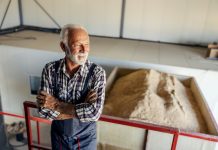
In a new study, researchers have identified a dead probiotic that reduces age-related leaky gut.
The research was conducted by scientists at Wake Forest School of Medicine.
Previous research has indicated that leaky gut, in which microbes and bacteria in the gut leak into the bloodstream through holes or cracks in the intestinal lining, causes an increase in low-grade inflammation, and these conditions are common in older people.
This resulting inflammation is thought to play a role in the development of many age-related diseases, such as diabetes, obesity, cancer, heart disease and decline in physical and cognitive functions.
Probiotics are important in maintaining a healthy gut and preventing leakage, but there isn’t much data available to pinpoint which ones work and which ones don’t.
Determining the strain that is most effective at reducing leaky gut and inflammation would help doctors target more effective strategies to address the problem, and help explain why probiotics work for some people but not others.
In the study, the team first screened eight strains of human-origin probiotics in roundworms, a commonly used model with a short lifespan of 11 to 20 days.
They discovered that a strain of Lactobacillus paracasei (D3-5), even in the non-viable or heat-killed form, extended the roundworms’ life span.
They then tested their initial findings in mice. The results showed that feeding heat-killed D3-5 to older mice prevented high fat diet-induced metabolic dysfunctions, decreased leaky gut and inflammation, and improved physical and cognitive functions.
This is the first-of-its-kind study to show that a component (lipoteichoic acid) from the cell wall of dead probiotic induced changes in the gut microbiome and mucin production, thereby reducing leaky gut and inflammation.
The findings could be very useful to the food and supplement industries because dead probiotics have the potential to be more stable and have a longer shelf life than live probiotics.
The lead author of the study is Hariom Yadav, Ph.D., assistant professor of molecular biology at Wake Forest School of Medicine.
The study is published in the journal GeroScience.
Copyright © 2019 Knowridge Science Report. All rights reserved.



